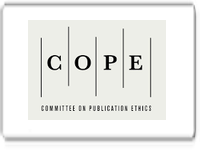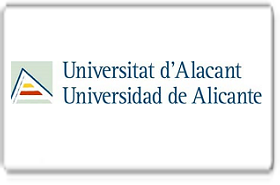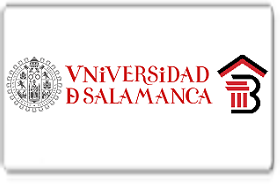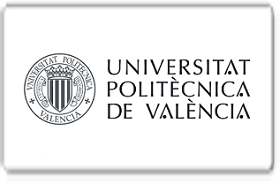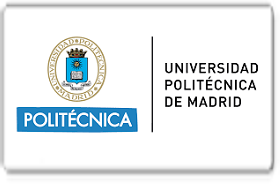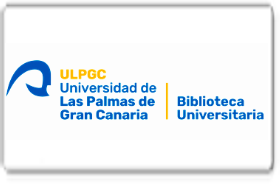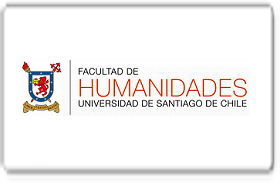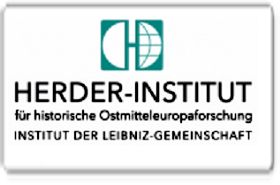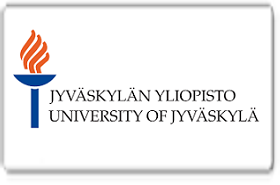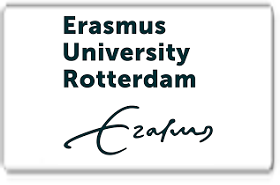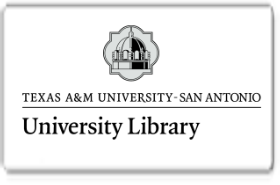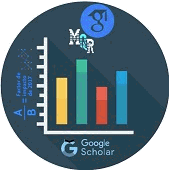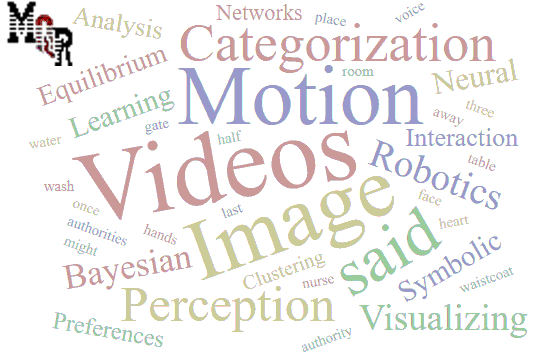El uso del aprendizaje basado en proyectos en las aulas de inglés como lengua extranjera: una revisión bibliográfica
DOI:
https://doi.org/10.56048/MQR20225.8.2.2024.1492-1516Palabras clave:
Aprendizaje Basado en Proyectos; inglés como lengua extranjera; destreza del habla; Teoría del Constructivismo Social; estrategias pedagógicas; experiencias de los profesoresResumen
El aprendizaje basado en proyectos (ABP) es un enfoque pedagógico innovador que se centra en la participación activa de los alumnos en proyectos del mundo real para adquirir conocimientos mejorando la competencia lingüística de forma auténtica. Este estudio tiene como objetivo explorar el uso del ABP en las aulas de inglés como lengua extranjera, identificando las estrategias pedagógicas y las experiencias de los profesores al implementar este enfoque. Se utilizó una revisión cualitativa integrativa como metodología de investigación para analizar la literatura de 29 artículos provenientes de varias bases de datos, tales como Google Scholar, Scopus, Web of Science, SciELO, ResearchGate y Redalyc, empleando criterios de inclusión y exclusión. Los resultados se agrupan en tres categorías: Estudios sobre el ABP en las aulas de inglés como lengua extranjera, estrategias pedagógicas que integran el ABP para fomentar el habla y experiencias de los docentes al implementar el ABP. Se concluye que el uso del ABP en las aulas de inglés como lengua extranjera es un enfoque adecuado para fomentar las habilidades de expresión oral a través de la interacción social mientras se trabaja en proyectos.
Descargas
Métricas
Cited
DOI: 10.56048![]()
Citas
Adilah, N. (2023). Systematic Literature Review: Project-Based Learning in English Language Teaching. Langue (Journal of Language and Education), 1(2), 1–14. https://doi.org/10.22437/langue.v1i2.24771
Baghoussi, M., & El Ouchdi, I. (2019). The Implementation of the Project-Based Learning Approach in the Algerian EFL Context: Curriculum Designers’ Expectations and Teachers’ Obstacles. Arab World English Journal, 10(1), 271–282. https://dx.doi.org/10.24093/awej/vol10no1.23
Bhandari, B. (2021). English language teachers’ understanding of project-based learning. Butwal Campus Journal, 4(1-2), 61–76. https://doi.org/10.3126/bcj.v4i1-2.45007
Bell, S. (2010). Project-Based Learning for the 21st Century: Skills for the Future. The Clearing House: A Journal of Educational Strategies, Issues and Ideas, 83(2), 39–43. https://doi.org/10.1080/00098650903505415
Blumenfeld, P. C., Soloway, E., Ronald, W. M., Krajcik, J. S., Guzdial, M. & Palincsar, A. (2011). Motivating Project-Based Learning: Sustaining the Doing, Supporting the Learning. Educational Psychologist, 26(3-4), 369–398. https://doi.org/10.1080/00461520.1991.9653139
Butarbutar, R., Monika, S., and Leba, S. (2023). Leveraging Collaborative Project-Based Learning to Encourage Speaking Proficiency in EFL Classroom: A Case Study in Engineering Department. Research and Innovation in Applied Linguistics-Electronic Journal (RIAL-EJ), 1(2), 68–79. https://doi.org/10.31963/rial-ej.v1i2.3761
Cahyana, P., Dauyah, E., Meutia, P. & Susiani, R. (2022). The use of Project-based Learning to improve the students’ speaking skills at Universitas Abulyatama. Jurnal Dedikasi Pendidikan, 6(2), 403–414. http://jurnal.abulyatama.ac.id/index.php/dedikasi
Dawson, L. (2023). Enhancing Language Development through Project-Based Learning: A Literature Review. Canadian Journal of Language and Literature Studies, 3(6), 35–40. https://doi.org/10.53103/cjlls.v3i6.138
Dewey, J. (1897). My Pedagogic Creed. John Dewey's famous declaration concerning education. First published in The School Journal, 59(3),77–80. http://www.infed.org/archives/e-texts/e-dew-pc.htm
Eneko, H. (2023). The impact of interdisciplinary project-based Based Learning on young learners’ speaking results. Porta Linguarum, 39, 129–145. https://doi.org/10.30827/portalin.vi39.22864
Garib, A. (2023). "Actually, It's Real Work": EFL Teachers' Perceptions of Technology-Assisted Project-Based Language Learning in Lebanon, Libya, and Syria. TESOL J, 57: 1434–1462. https://doi.org/10.1002/tesq.3202
Guslyakova, A., Guslyakova, N., Valeeva, N. & Veretennikova, L. (2021). Project-based learning usage in L2 teaching in a contemporary comprehensive school (on the example of English as a foreign language classroom). Revista Tempos e Espaços em Educação, 14(33), e16754. https://doi.org/10.20952/revtee.v14i33.16754
Halim, N., Boys, M., Fahmi, F., & Nitin, M. (2023). The Implementation of Project-Based Learning in Indonesian EFL Class Between 2017 to 2022: A Systematic Review. Lingeduca: Journal of Language and Education Studies, 2(2), 95–111. https://doi.org/10.55849/lingeduca.v2i2.96
Huang, H., & Sun, C. (2022). Exploring the Effectiveness of Project-Based Learning on Speaking Test Performance. Advances in Social Science, Education, and Humanities Research, 664, 2221–2227. https://doi.org/10.2991/assehr.k.220504.403
Ikhsanuddin, I. & Purwoko, D. (2022). Developing Online Speaking Activities Via TikTok: Project-based Learning. International Journal of Practices in Teaching and Learning, 2(1), 1–7. https://www.researchgate.net/publication/360477552
Kemaloglu-Er, E. (2022). Project-based EFL learning at the tertiary level: Research, translation, creativity and interaction. Turkish Journal of Education, 11(3), 162–182. https://doi.org/10.19128/turje.1061653
Kusmaryani, W. & Tanjung, F.Z. (2023). The Use of Mobile Applications in Digital Project-Based Learning to Improve Students’ English Speaking Skill. Journal of Linguistic and English Teaching, 8(2), 163–179. http//dx.doi.org/10.24903/sj.v8i2.1422
Kuswahyuningsih, K., Giyoto, G., Untari, L., & Bustany, Z. (2023). The Implementation of Project-Based Learning Model through ORAI in Recount Material to Enhance English Speaking Skill. Jurnal Lingua Idea, 14(1), 133-141. https://doi.org/10.20884/1.jli.2023.14.1.6466
Latifaj, D. (2022). The importance of Project-based Learning in teaching English as a Foreign Language - a case study from the Republic of Kosovo. SEEU Review, 17 (1), 90–104. DOI: 10.2478/seeur-2022-0031
Lenz, B., Wells, J., & Kingston, S. (2015). Transforming schools using project-based deeper learning, performance assessment, and common core standards. San Francisco, CA: John Wiley & Sons. https://books.google.com.ec/books/about/Transforming_Schools_Using_Project_Based.html?id=govinAEACAAJ&redir_esc=y
Mafruudloh, N., & Fitriati, R. (2020). The Effect Of Project-based Learning To The Students' Speaking Ability. Celtic: A Journal of Culture, English Language Teaching, Literature and Linguistics, 7(1). http://ejournal.umm.ac.id/index.php/celtic/index
Mantilla, L., Larrea, M., & Tapia, J. (2020). Aprendizaje basado en proyectos y destreza oral en inglés de estudiantes universitarios. [Project-based learning and oral Skills in English for college students]. Revista Arbitrada Interdisciplinaria KOINONIA, 5(9), 544–558. http://dx.doi.org/10.35381/r.k.v5i9.685
Maqbulin, A. (2023). The relation between Project-based Learning and Speaking skill in English class for Senior High School students. Jurnal Diklat Keagamaan, 17(2), 215–222. https://doi.org/10.52048/inovasi.v17i2.457
Moussaoui, R., & Erguig, R. (2024). Implementing Project-Based Learning in Moroccan Classrooms: Misconceptions, Impact and Challenges. International Journal of Linguistics and Translation Studies, 5(1),15–27. https://doi.org/10.36892/ijlts.v5i1.402
Mujiono., Weganofa, R., & Herawati, S. (2023). Project-based learning intervention and its effect on promoting English language proficiency based on moderator variables: Meta-analysis. International Journal of Instruction, 16(4), 465–484. https://doi.org/10.29333/iji.2023.16427a
Nugroho, W., & Anugerahwati, F. (2019). Project-Based Learning: Enhancing EFL Students’ Speaking Skill through Vlog. Jurnal Pendidikan, 4(8), 1077–1083. DOI: 10.17977/jptpp.v4i8.12679
Pérez, R., González, W., & Sarasola, M. (2022). Implementation of Project-Based Learning in Uruguayan Secondary Schools. Pensamiento Educativo. Revista de Investigación Educacional Latinoamericana, 59(2), 1–16. DOI: 10.7764/PEL.59.2.2022.10
Ram, B.M. (2022). Implementing Project-Based Language Learning and Teaching in Classrooms: EFL Teachers’ Perspectives. KMC Journal, 4(2), 89–102. DOI: 10.3126/kmcj.v4i2.47741
Ratna, D., Simbolon, S., & Haryudin, A. (2019). Improving Students’ Speaking Skill Through Project Based Learning (PBL). Professional Journal of English Education, 2(2), 241–246. https://doi.org/10.22460/project.v2i2.p241-246
Sanz, F. J. & Sánchez, I. (2021). Enseñar lenguas extranjeras mediante la pedagogía por proyectos. Implicaciones para el aula y la planificación docente. GEADEL, 2(3), 101–118. https:// periodicos.ufac.br/index.php/GEADEL/article/view/5871
Sirisrimangkorn, L. (2018). The use of project-based learning focusing on drama to promote speaking skills of EFL learners. Advances in Language and Literary Studies, 9(6), 14. https://doi.org/10.7575/aiac.alls.v.9n.6p.14
Snyder, H. (2019). Literature review as a research methodology: An overview and guidelines. Journal of Business Research, 104 (2019), 333–3. https://doi.org/10.1016/j.jbusres.2019.07.039
Solorzano, G., & Loor, L. (2023). Aprendizaje Basado en Proyectos para desarrollar habilidades productivas en la enseñanza y aprendizaje del inglés. [Project-Based Learning to Improve the Productive Skills in the Teaching and Learning of English]. Revista Estudios del Desarrollo Social: Cuba y América Latina, 11(2), e1. http://scielo.sld.cu/scielo.php?script=sci_arttext&pid=S2308-01322023000200001
Sundus, A., & Majed, O. (2024). Enhancing English Language Students Productive Skills through Project-based Learning: A Mixed Method Research. International Journal of Learning, Teaching and Educational Research, 23 (1), 231–257. https://doi.org/10.26803/ijlter.23.1.12
Vera, I., Udodirim, A., Ikechukwu, I., & Charity, O. (2020). Social Constructivism: Implications on teaching and learning. British Journal of Education, 8(8), 49–56. https://www.eajournals.org/wp-content/uploads/Social-Constructivism.pdf
Vygotsky, L. S. (1978). Mind in society: The development of higher psychological processes. (M. Cole, J. Scribner, V. John-Steiner, & E. Souberman, Eds.) Cambridge, MA: Harvard University Press. Retrieved from: https://home.fau.edu/musgrove/web/vygotsky1978.pdf
Whittemore, R., & Knafl, K. (2005). The integrative review: updated methodology. Journal of Advanced Nursing, 52(5), 546–553. https://doi.org/10.1111/j.1365-2648.2005.03621.x
Widiyati, E., & Pangesti, W. (2022). Project-based learning in teaching speaking to young learners: Is it effective? EduLite: Journal of English Education, Literature, and Culture, 7 (1), 71–81. http://dx.doi.org/10.30659/e.7.1.71-81
Widyastuti, D. (2021). The use of project-based learning and peer Assessment to improve students’ speaking skill for Young learners. Journal of Economics, Management, Entrepreneur, and Business, 1(1), 66–71. DOI: 10.52909/jemeb.v1i1.19
Winasih, W. W., Cahyono, B.Y., & Prayogo, J. A. (2019). Effect of Project-Based Learning Using E-Poster on Indonesian EFL Students’ Speaking Ability across Personality Types. Arab World English Journal, 10 (1) 73–83. https://dx.doi.org/10.24093/awej/vol10no1.7
Yamada, H. (2020). An implementation of project-based learning in an EFL context: Japanese students’ and teachers’ perceptions regarding team learning. TESOL Journal, 12(1), 1–16. https://doi.org/10.1002/tesj.519
Zhong, Y. (2023). Project-based Language Learning and Its Implications for English Teaching in Chinese Universities. Lecture Notes in Education Psychology and Public Media, 31(1),102–109. DOI: 10.54254/2753-7048/31/20231856
Publicado
Cómo citar
Número
Sección
Categorías
Licencia

Esta obra está bajo una licencia internacional Creative Commons Atribución 4.0.
Los autores se comprometen a respetar la información académica de otros autores, y a ceder los derechos de autor a la Revista MQRInvestigar, para que el artículo pueda ser editado, publicado y distribuido. El contenido de los artículos científicos y de las publicaciones que aparecen en la revista es responsabilidad exclusiva de sus autores. La distribución de los artículos publicados se realiza bajo una licencia 


















